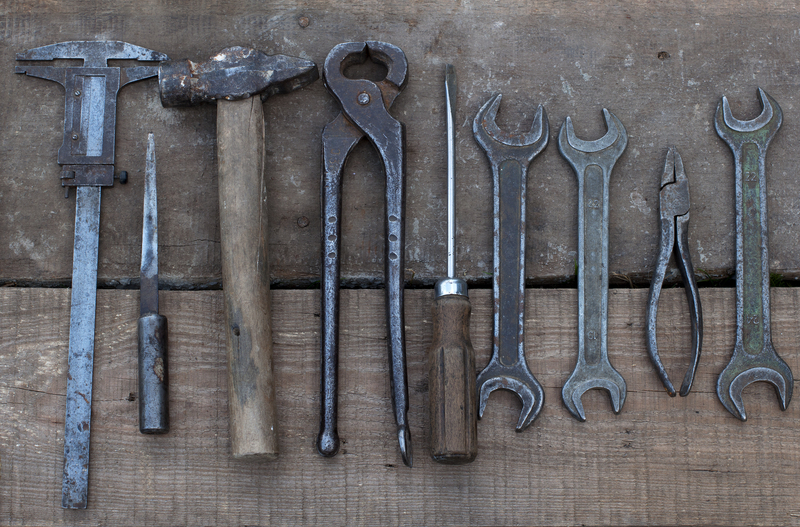Bulky Waste Items: Best Ways to Dispose and Save Money
If you've ever faced the challenge of getting rid of large, unwanted items--think old sofas, broken refrigerators, or worn-out mattresses--you know how overwhelming it can be. These bulky waste items require special attention, not just for convenience but also to ensure safe disposal and cost savings. In this comprehensive guide, we'll explore the best ways to dispose of bulky items and offer practical tips to help you save money in the process.

What Are Bulky Waste Items?
Bulky waste items, also known as large refuse or heavy rubbish, are household items too large to fit in your regular trash bin. They typically include furniture, appliances, carpets, garden equipment, and other sizeable objects. Disposing of these goods responsibly is essential for environmental protection and to avoid fines from improper dumping.
- Furniture: sofas, beds, dining tables, chairs
- Large appliances: refrigerators, washing machines, ovens
- Mattresses and bed frames
- Carpets and rugs
- Exercise equipment
- Garden waste: tree limbs, shed panels, lawn mowers
- Old electronics: televisions, computers, printers
Disposal Challenges for Bulky Waste
Many municipalities don't accept bulky waste items in standard curbside collection. This leaves homeowners and business owners searching for cost-effective, environmentally safe disposal methods. The most common challenges include:
- Transporting heavy items safely
- Tipping or hauling fees at landfills
- Finding recycling or donation centers that accept large objects
- Compliance with local waste regulations
How to Safely and Affordably Dispose of Bulky Items
1. Schedule a Bulky Waste Collection Service
Most cities and counties provide a bulky waste pickup service--sometimes called XXL trash day--where residents can schedule a collection for their large items. You generally need to book in advance, follow specific guidelines about what's accepted, and place items at the curb on the designated day.
- Pros: Convenient, often subsidized or free for residents, items are disposed of responsibly.
- Cons: May have a waiting list, restrictions on the number or type of items, fees for extra items.
Tip: Check with your local council or waste authority for scheduled collection dates and accepted items. Group items with neighbors for shared pickups to lower costs.
2. Donate or Give Away Large Items
One person's bulky waste is another's treasure. Many charitable organizations accept gently used furniture, appliances, and electronics. Some even offer free pickup services.
- Contact charities like Goodwill, Salvation Army, Habitat for Humanity, or local community shelters.
- List bulky items on community marketplaces or local online groups (e.g., Facebook Marketplace, Freecycle, Craigslist).
- Host a curb alert by placing items outside with a "Free" sign--often, they're gone within hours!
*Giving items away reduces landfill waste, helps others, and can be cost-free or even tax-deductible.*
3. Recycle Where Possible
Many bulky waste items can be recycled, especially appliances and electronic waste. Metal and wood from furniture can be reused, and mattresses sometimes have recyclable components.
- Contact local recycling centers to learn what bulky waste they accept.
- Look for special e-waste collection events for TVs, computers, and appliances.
- Separate recyclable materials before disposal to maximize efficiency and lower fees.
Recycling keeps hazardous substances out of landfills and supports the circular economy.
4. Rent a Dumpster or Skip Bin
For major cleanouts, renovations, or garden projects, renting a dumpster or skip bin may be the most practical solution. These services drop off a large container and haul it away when full.
- Pros: Handles a large volume of waste, flexible timing, easier for DIY projects.
- Cons: Can be expensive, may require a permit or space for placement, not all materials accepted.
*To save money, split the rental cost with neighbors who also have bulky items to dispose of.*
5. Take Items Directly to a Local Disposal or Recycling Facility
If you have a suitable vehicle, consider hauling the items to your local landfill, transfer station, or recycling center. There are usually set fees based on item size or weight.
Check facility guidelines before you haul--some require proof of residency, have specific hours or only accept certain types of bulk waste.
6. Hire a Professional Junk Removal Service
There are many companies specializing in removing all kinds of large unwanted items. They handle the lifting, loading, and disposal or recycling for you.
- Obtain quotes from multiple local junk removal services for the best deal.
- Make sure the company is licensed, insured, and committed to responsible disposal or recycling.
- Ask if they offer discounts for multiple items or shared pickups.
Tip: Remove as much as possible from your list in one go--single visits are often less expensive per item.
How to Save Money Disposing of Bulky Waste
Properly disposing of large household waste doesn't have to break the bank. With a little planning, you can cut costs while ensuring your items are disposed of in an eco-friendly, legal way.
Bulk Item Disposal: Cost-Saving Strategies
- Plan Ahead: Combine multiple bulky items for one pickup or trip to maximize value.
- Split Costs: Share disposal services or skip rentals with neighbors or friends doing similar cleanouts.
- Check for Free Services: Look for city, county, or charity-sponsored events offering free or reduced-rate pickups.
- Sell Usable Items: Use online marketplaces to sell or trade items in good condition. Profit can offset disposal costs.
- Disassemble Items: Breaking down furniture and appliances into smaller parts can save space and potentially reduce hauling fees.
- Understand Local Regulations: Avoid fines by following local bulk waste guidelines and schedules.
Don't Overlook Special Disposal Days
Municipalities often host Bulky Item Collection Days or community recycle events several times a year where pickup is free or heavily discounted. Signing up for local newsletters or checking the city website can alert you to these kid of opportunities.
Be Mindful of Illegal Dumping
Never dump bulky waste on the street or in unauthorized areas. Illegal dumping may result in heavy fines, environmental hazards, and unsightly neighborhoods. Always dispose of heavy household items through proper channels.
Environmental Impact of Bulky Waste Disposal
Responsibly disposing of large rubbish items benefits not just your wallet but the environment, too. Proper handling ensures hazardous materials (such as refrigerant gases or batteries) are safely processed, while recycling and reuse reduce landfill load.
- - Appliances and electronics often contain hazardous chemicals; safe disposal prevents soil and water contamination.
- - Recycling metals, plastics, and wood conserves resources and fights climate change.
- - Donating and reusing keep usable items circulating within the community, supporting those in need.
*Every responsible disposal effort helps build a cleaner, safer world.*

FAQs About Bulky Waste Item Disposal
- What items are typically classified as bulk waste?
Anything too large or heavy for your regular trash collection, including sofas, large appliances, mattresses, carpets, and yard debris. - Can I leave bulk waste at the curb?
Only on designated bulk collection days or by arrangement with your local authority--otherwise, you could face fines. - What happens to my bulky waste after collection?
Depending on your provider, items are sorted for recycling, donation, or safe landfill disposal. - How much does bulk waste disposal cost?
Costs vary by city, provider, and type/number of items. Some programs are free for residents, while others charge per item or weight. - Are there alternatives to landfill disposal for bulk items?
Yes--donate, recycle, or sell usable items to keep them from ending up in landfill.
Conclusion: Smart, Cost-Effective Bulky Waste Disposal
Bulky waste items, while cumbersome, don't have to be a nuisance or an expense burden. By understanding your local options for bulk rubbish removal, planning your disposal efficiently, and prioritizing recycling and donation, you can save money and contribute to a healthier environment.
Whenever possible, reuse, donate, or recycle. Reserve landfill as the last resort--your efforts make a difference!
For the most current bulky waste disposal information, always check with your local waste authority before taking action.
Key Takeaways
- Know your local bulky waste disposal rules and schedules.
- Donate, recycle, or sell items before choosing landfill disposal.
- Use official services or responsible contractors for removal.
- Plan and share services to save money and effort.
With the right approach, bulky waste disposal can be environmentally friendly, convenient, and budget-conscious.
